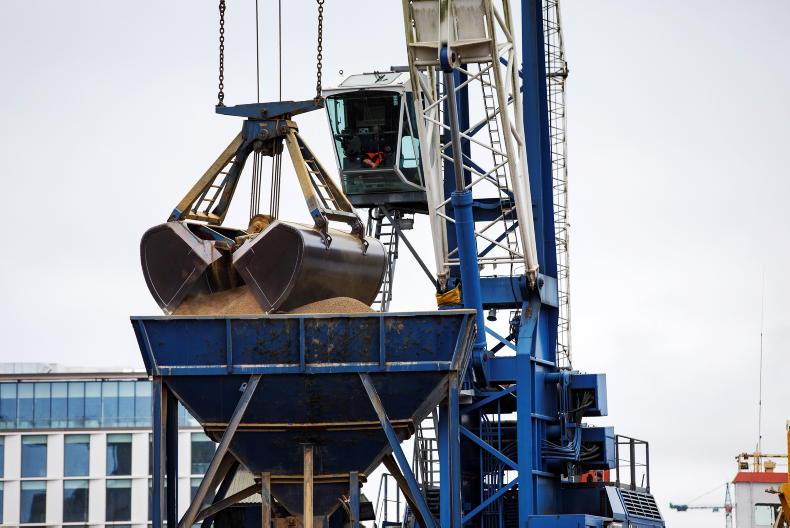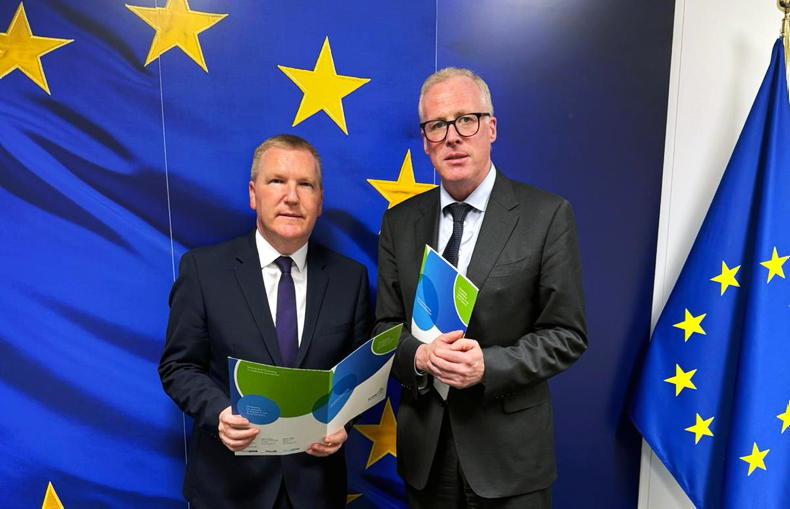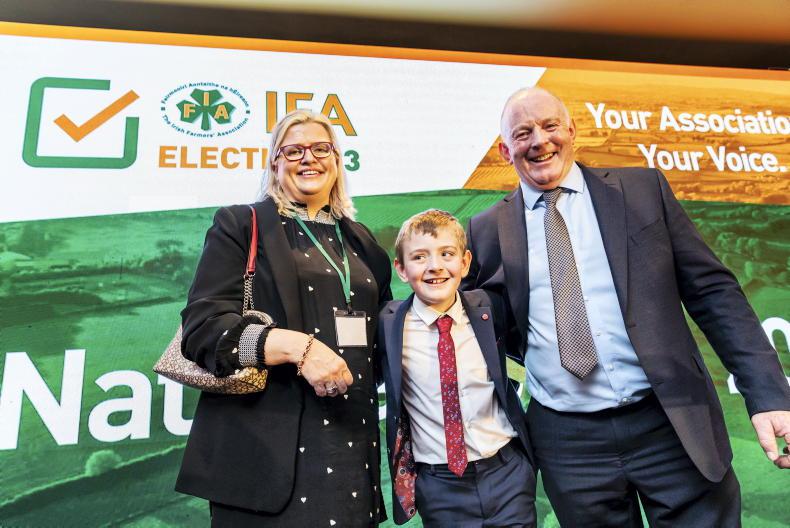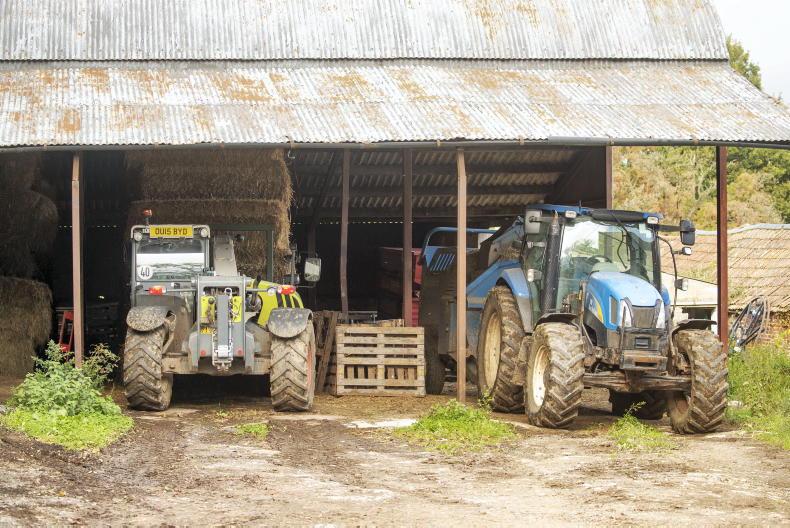EU-level market supports are needed in the short term to stabilise agri-food markets in the significant volatility that has followed Russia’s invasion of Ukraine, EU ministers for agriculture agreed at an emergency meeting with the Commissioner for Agriculture Janusz Wojciechowski on Wednesday.
The market supports are needed to lessen the impact that EU sanctions against Russia and Belarus will have on EU farmers, as well as the effects on the supply of agri-food inputs resulting from the cessation of shipping along Black Sea routes, the council of agricultural ministers said.
Most of the Ukrainian grain entering the EU travels along the Black Sea route and the “stopping of imports” particularly affects the EU’s livestock sector, which relies on Ukrainian imports for wheat, oilseed and protein feedstuffs for the formulation of rations.
Crisis reserve
Private storage and the crisis reserve are the two market intervention measures that the Commissioner mentioned were being examined by his colleagues and officials.
"Our immediate actions should be focused on trying to maintain supply chains and minimise any disturbances to these.
"I have therefore also asked the European Commission to carefully risk assess what actions can be taken now in order to support supply chains," commented Minister for Agriculture Charlie McConalogue after the special meeting.
The Minister also welcomed "Commissioner Wojciechowski’s assurance today that the European Commission stands ready to make market support measures under the CMO regulation available as required".
This market intervention was only one of three policy areas that would be considered by Brussels to help relieve the short-term impact of the crisis facing farmers, said the president of the council of agricultural ministers French minister for agriculture Julien Denormandie.
Further measures
Minister Denormandie said that the planting of land earmarked for set-aside measures would also play a role in the EU’s response to reduced grain imports, particularly for protein and oilseed feed ingredients.
The council’s head also noted that a common theme brought forward by the ministers over the special meeting was that of reassessing the objectives of the Farm to Fork strategy in the context of the post-invasion supply chain situation in the EU.
It was said that improved "food sovereignty" was a key political priority of the ministers.
The Commissioner stated that Brussels would re-examine the objectives, but that improved productivity did not necessarily negate the intended goals of the strategy.
One instance he cited in this was that of a more precise input usage within the sector.
Three priorities
Minister Denormandie said that three conclusions had been identified over Wednesday’s meeting for further consideration by European policymakers, as a short-term priority.
These conclusions were:
To mobilise an expert group on food security to assess what supports would be needed to mitigate the impacts of the Ukrainian crisis on the agri-food sector.To finalise special “market support measures” that are currently being assessed by the European Commission.To do “everything we can” to maximise grain production capacity across the EU, especially with regards to the planting of protein crops.
EU-level market supports are needed in the short term to stabilise agri-food markets in the significant volatility that has followed Russia’s invasion of Ukraine, EU ministers for agriculture agreed at an emergency meeting with the Commissioner for Agriculture Janusz Wojciechowski on Wednesday.
The market supports are needed to lessen the impact that EU sanctions against Russia and Belarus will have on EU farmers, as well as the effects on the supply of agri-food inputs resulting from the cessation of shipping along Black Sea routes, the council of agricultural ministers said.
Most of the Ukrainian grain entering the EU travels along the Black Sea route and the “stopping of imports” particularly affects the EU’s livestock sector, which relies on Ukrainian imports for wheat, oilseed and protein feedstuffs for the formulation of rations.
Crisis reserve
Private storage and the crisis reserve are the two market intervention measures that the Commissioner mentioned were being examined by his colleagues and officials.
"Our immediate actions should be focused on trying to maintain supply chains and minimise any disturbances to these.
"I have therefore also asked the European Commission to carefully risk assess what actions can be taken now in order to support supply chains," commented Minister for Agriculture Charlie McConalogue after the special meeting.
The Minister also welcomed "Commissioner Wojciechowski’s assurance today that the European Commission stands ready to make market support measures under the CMO regulation available as required".
This market intervention was only one of three policy areas that would be considered by Brussels to help relieve the short-term impact of the crisis facing farmers, said the president of the council of agricultural ministers French minister for agriculture Julien Denormandie.
Further measures
Minister Denormandie said that the planting of land earmarked for set-aside measures would also play a role in the EU’s response to reduced grain imports, particularly for protein and oilseed feed ingredients.
The council’s head also noted that a common theme brought forward by the ministers over the special meeting was that of reassessing the objectives of the Farm to Fork strategy in the context of the post-invasion supply chain situation in the EU.
It was said that improved "food sovereignty" was a key political priority of the ministers.
The Commissioner stated that Brussels would re-examine the objectives, but that improved productivity did not necessarily negate the intended goals of the strategy.
One instance he cited in this was that of a more precise input usage within the sector.
Three priorities
Minister Denormandie said that three conclusions had been identified over Wednesday’s meeting for further consideration by European policymakers, as a short-term priority.
These conclusions were:
To mobilise an expert group on food security to assess what supports would be needed to mitigate the impacts of the Ukrainian crisis on the agri-food sector.To finalise special “market support measures” that are currently being assessed by the European Commission.To do “everything we can” to maximise grain production capacity across the EU, especially with regards to the planting of protein crops. 








SHARING OPTIONS